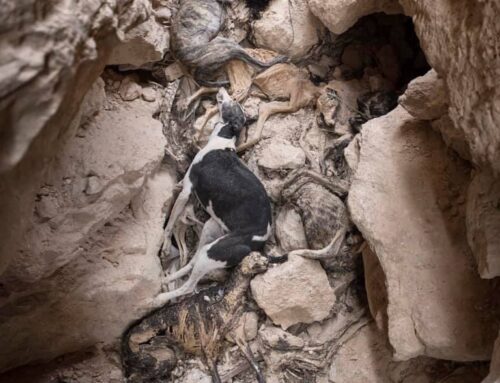Spain has a long controverse history when it comes to animal rights, but a change is evident in the Spanish political landscape. The country has taking its first steps to incorporate the European norm animals as sentient beings into their own law.
In March 2021, the European Parliament has reminded the Spanish government of the fact that according to article 13 of the Lisbon treaty, animals are recognised as sentient beings. This status offers animals greater protection as well as the right to proper care. Recently, Spain has approved a proposal that will facilitate the application of the principle of animals as sentient beings into their national laws.
The proposal concerns an amendment to civil laws, aimed at de-objectifying animals and changing their legal status to sentient beings. The reform also includes corresponding changes to the Mortgage law and the Civil Procedure Rules. This should, for example, prevent animals from being auctioned off during divorce procedures. On Tuesday 20 April 2021, during a plenary session, the Spanish Congress approved this proposal with a large majority. This will result in further legal effects that will ensure that animals are no longer treated as objects.
Setting the trend both morally and legally
This has, at last, made a start in legally acknowledging that animals are sentient beings and therefore have the right to protection. In addition, this contributes to the normalisation of these moral values. Despite the fact that the legal proposal is not primary aimed at hunting dogs, this development is an important step in the right direction for these animals, too. Sandra Guaita, presenter of the proposal for the Socialist Party PSOE, emphasises that abandonment and abuse should also be contested. She has argued that the government will continue along this avenue with future proposals, such as reform of criminal law or animal welfare regulations, both of which are important for the hunting dogs. We should accept that animals are not objects, they are living beings which feel and suffer, said Guaita.
A similar initiative had already been approved by Congress previously, in 2017. But early elections in March 2019 resulted in the courts overturning the initiative, because its development had not been sufficiently completed. The current proposal, promoted by the Socialist Party PSOE and Unidad Prodemos, intends to restore the 2017-2019 efforts. In the plenary session, it was agreed that the processing will be fast tracked to ensure the work will be completed this time around. Despite a large majority backing this development, not all parties are in agreement. VOX is the only party that voted against the proposal, citing farious animal ideology and defending animal rights. Ãngel LÃpez
Maraver (VOX) argued that the proposition was not written correctly, as it does not clearly state at which types of animals it is directed and may have intentions that stretch further than the protection of animals. This could create a dangerous tendency to humanise animals, which could eventually oppose the rural society. In contrast, Guaita argued that this proposal is in line with other European countries, and Avelino Barrionuevo previously emphasised that this initiative expresses the opinion of the people.
The accepted proposal, which legally acknowledges that animals are sentient beings, means that Spain has finally taken the next step towards the protection of animals in general, which includes hunting dogs. This legal reform brings Spain closer to other European countries, and it casts a new spotlight on the process of incorporating European guidelines into national laws. Furthermore, it contributes to the normalisation of these moral values and sets the trend for further and more specific legal reforms within the framework of animal welfare.
Article 13, title II, Lisbon Treaty
Protocol on protection and welfare of animals
Article 13 title II
THE HIGH CONTRACTING PARTIES,
DESIRING to ensure improved protection and respect for the welfare of animals as sentient beings;
HAVE AGREED UPON the following provision which shall be annexed to the Treaty establishing the European Community,
In formulating and implementing the Community’s agriculture, transport, internal market and research policies, the Community and the Member States shall pay full regard to the welfare requirements of animals, while respecting the legislative or administrative provisions and customs of the Member States relating in particular to religious rites, cultural traditions and regional heritage.





